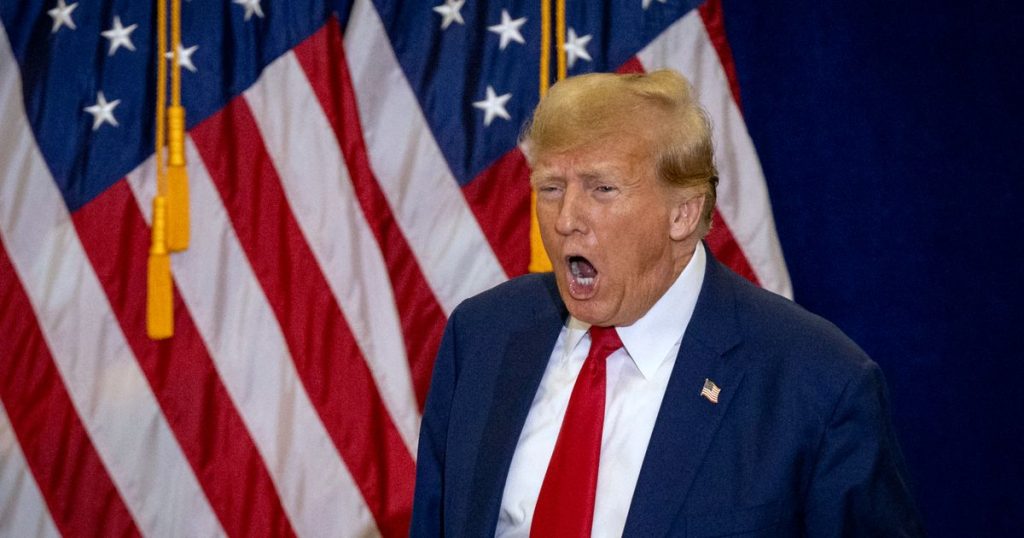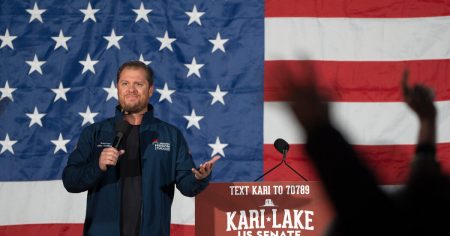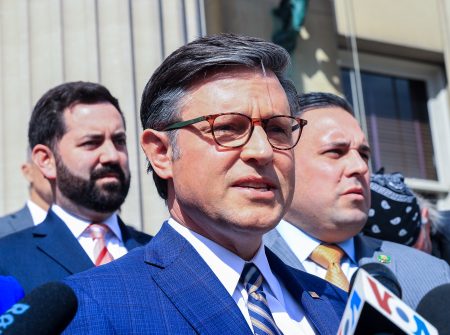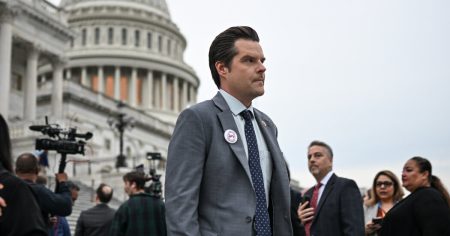William Wolfe, a former White House official and self-described “Christian nationalist,” asserted that Donald Trump is concealing his true, radical beliefs on the campaign trail. According to Wolfe, a second Trump administration would likely govern in a more conservative and aggressive manner compared to his current public statements. He suggested that Trump strategically hides his agenda until securing power, aligning with online far-right circles’ notion of “hiding power levels” within mainstream conservative organizations to achieve more extreme policies once in office.
Wolfe highlighted that he believes Trump’s recent criticism of Arizona’s abortion ban and disavowal of a federal ban may be tactical. Despite Trump’s public statements, Wolfe contended that the former president’s actions in terms of selecting Supreme Court justices suggest a different agenda. Wolfe also speculated that other conservative Republicans could consider a similar approach of “doing radical scary conservative things” while in power. His remarks imply that Trump may pursue a fundamentally different policy direction if reelected to the White House, aligning more closely with far-right ideologies.
As a close associate of Russ Vought, the president of the Center for Renewing America, Wolfe is involved in shaping a potential Trump second-term policy agenda. Vought’s Project 2025 aims to integrate Christian nationalism into the fabric of government, advocating for policies influenced by far-right Christian fundamentalism. This vision is in line with Wolfe’s beliefs, as he has previously expressed opposition to various progressive initiatives, including same-sex marriage, sex education, and transgender rights. Wolfe’s endorsement of Christian nationalism raises concerns about the implications for governance in a diverse and pluralistic society.
In a separate appearance on “The Stew Peters Show,” Wolfe made controversial remarks about the need for Christian nationalists in office to assert their authority according to biblical principles. He suggested that resorting to arms to defend the faith might become necessary, hinting at a potentially confrontational approach to securing their beliefs. Wolfe’s statements reflect a troubling trend of extremist rhetoric, where the narrative of defending Christianity against perceived threats from liberal forces takes center stage, potentially inciting further division and conflict within society.
Regarding the current administration, Wolfe lambasted President Joe Biden and his team, characterizing them as possessed by demons, Marxists, and radicals intent on persecuting Christians. Despite Biden’s Catholic faith, Wolfe painted his administration as hostile and aggressive towards conservative Christians, warning of potential government crackdowns on dissent. This hyperbolic depiction of the Biden presidency mirrors a broader narrative within far-right circles that seeks to portray Democrats and progressives as existential threats to Christian values and freedoms.
In conclusion, William Wolfe’s remarks underscore the influence of far-right ideologies within American politics and the potential for more extreme policies under a Trump second term. His advocacy for Christian nationalism and alarmist views of the current administration reflect a growing trend of radicalization within conservative circles. Wolfe’s statements signal a willingness to pursue divisive and confrontational tactics in defense of fundamentalist beliefs, raising concerns about the future of governance and social cohesion in the United States. As such, his commentary highlights broader tensions within the political landscape and the challenges posed by extremism in shaping national discourse and policy.















